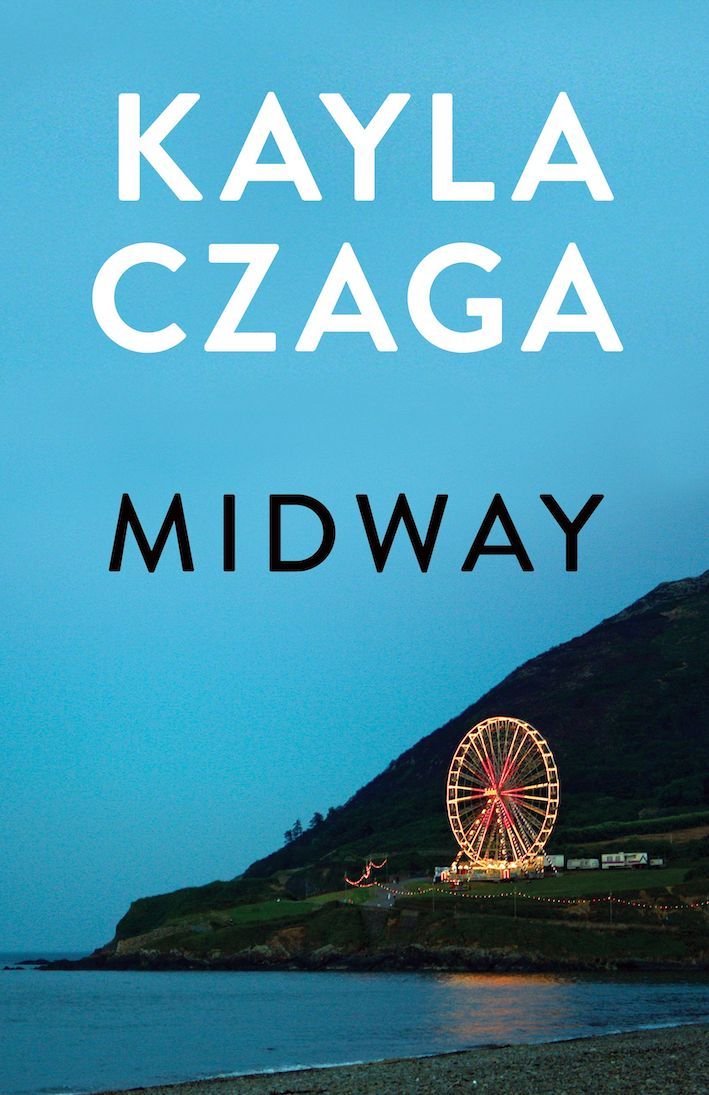MIDWAY
Honest, elegiac, characteristically strange, and frequently funny, Midway is an exploration of grief in all its manifestations.
"I feel like the crud / I accidentally touch sometimes, whatever it is / that collects under cushions on my couch," writes Kayla Czaga in her third collection, Midway, an exploration of grief in all its manifestations. In her search for meaning in the aftermath of her parents' deaths, Czaga visits the underworld (at least twice), Vietnamese restaurants, the beach, London's Tate Modern, Las Vegas casinos, and a fish textbook, among others. Honest, elegiac, characteristically strange, and frequently funny, these poems take the reader through bright scenery like carnival rides with fast climbs and sudden drops. The meanings and messages Czaga uncovers on her travels are complicated: hopeful, bleak-both comforting and not. Along with the parents the poet mourns, this collection showcases a varied cast. A suburban father-in-law copes with a troubling diagnosis. Marge Simpson quits The Simpsons. Death is a metalhead who dates girls too young for him. Midway is a welcome and necessary collection from one of the most celebrated and accomplished poets of her generation.
PRE-ORDER
PRAISE FOR ‘MIDWAY’
““Then I got into the poem– / it doesn’t matter which poem– / and let it take me / wherever it was going,” Kayla Czaga concludes in her powerful elegy, “Dad Poem,” and I found myself making this allowance as well throughout the brilliant lyric poems of Midway. There’s a lot of discussion of dinosaur erotica but, sadly, little actual dinosaur erotica. Instead the poet shows a sprightly imagination formed as much from the ebullience of fanfiction as the “seven hundred Romantic poems” she studied in school (merely learning “how to flirt with lakes”). But Keats in the Internet age would still have been Keats, just a Keats who wrote some Hanson fanfiction at some point. He would have perhaps written, as Czaga does, a poem called “The Sadness of Marge Simpson,” though this one is better because it’s real, and in this tremendous book: “my dad didn’t actually die / but has been in China this whole time / gawking at the Great Wall like he always wanted / and maybe Marge Simpson is with him, / having finally divorced her declining franchise.” To a reader facing one’s own declining franchises, Czaga’s Midway offers a glimpse at how, through the paired problems of the presence of parents and their absences, one’s imagination and self might still grow.”
“A lyric force, taking on grief in molecular detail. I love these poems.”
